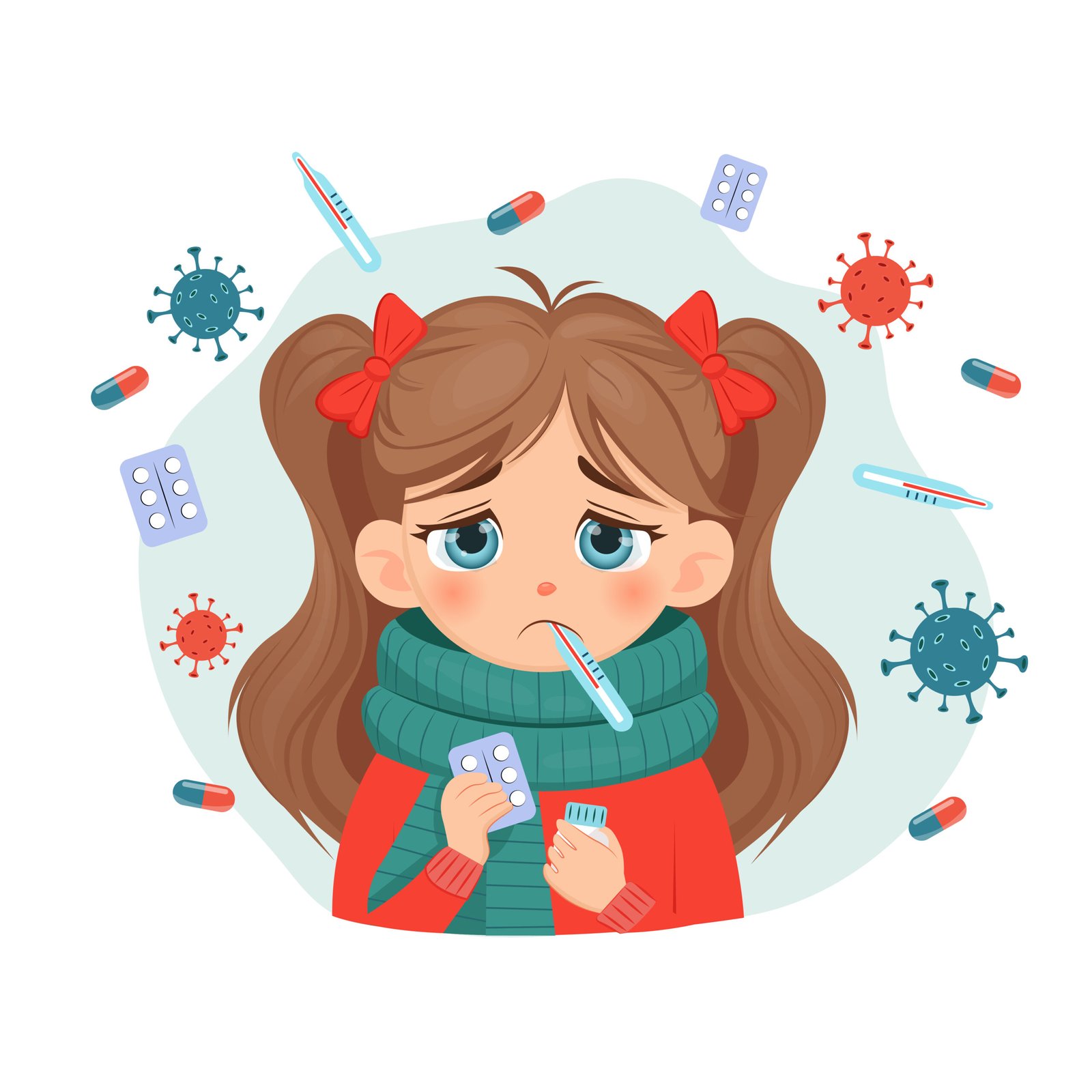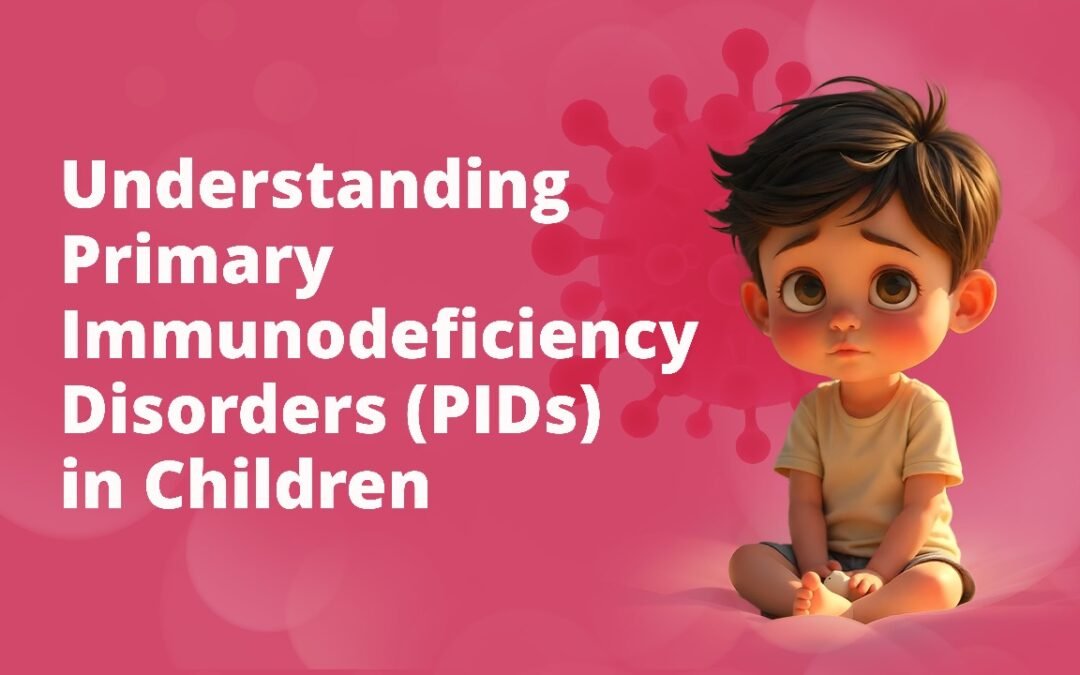Does your child frequently fall sick? Do they have recurrent fevers, ear infections, or chest congestion despite regular medication?
While it’s common for children to catch colds and flu occasionally, persistent or severe infections could be a sign of something deeper— a condition called Primary Immunodeficiency Disorder (PID).
In this blog, Dr. Shraddha Chandak, Pediatric Hemato-Onco-Immunologist at Kpond Superspeciality Hospital, Garkheda, Aurangabad (CSN), explains what PIDs are, how to identify them, and why early diagnosis is crucial.
What Are Primary Immunodeficiency Disorders?
Primary Immunodeficiency Disorders are genetic or congenital conditions where a child’s immune system is either absent, underdeveloped, or not functioning properly.
Children with PID are more vulnerable to frequent, severe, or unusual infections that don’t respond well to standard treatment. There are over 400 known types of PIDs, ranging from mild to life-threatening. These conditions may affect different components of the immune system like:
- Antibodies (B-cells)
- T-cells
- Phagocytes
- Complement proteins

Signs That May Point to PID
A child with PID doesn’t just “fall sick often.” Their illness patterns are recurrent, severe, and resistant to treatment. Key signs include:
- 4+ ear infections in a year
- 2+ serious sinus infections within a year
- 2+ episodes of pneumonia within a year
- Need for IV antibiotics to clear infections
- Poor growth or weight gain
- Family history of PID
- Recurrent skin, liver, or bone infections
- Infections that are unusually severe or persistent
If your child shows multiple such signs, it’s advisable to consult a pediatric immunologist like Dr. Shraddha Chandak for further evaluation.
Common Types of Primary Immunodeficiency in Children
- X-linked Agammaglobulinemia (XLA)
→ Absence of B-cells, leads to low antibody levels
- Common Variable Immunodeficiency (CVID)
→ Late-onset immunodeficiency, causes frequent respiratory infections
- Severe Combined Immunodeficiency (SCID)
→ Often called “bubble boy disease,” requires urgent intervention
- Chronic Granulomatous Disease (CGD)
→ Affects phagocyte function, leads to deep tissue infections
- Selective IgA Deficiency
→ Common yet often undiagnosed; leads to chronic respiratory and GI infections
How Is PID Diagnosed?
Dr. Chandak follows a structured diagnostic approach that includes:
- Detailed medical & family history
- Physical examination
- Basic blood tests (CBC, ESR, Immunoglobulin levels)
- Advanced immunological work-up
- Genetic testing, if required
Early detection allows for better outcomes and prevents long-term damage.
Treatment Options for PID
There is no one-size-fits-all treatment for PID. It depends on the specific condition, severity, and the child’s age. Treatment may include:
- Immunoglobulin (IVIG or SCIG) Therapy
- Regular infusions to boost immunity
- Antibiotic Prophylaxis
- Prevents infections before they occur
- Stem Cell / Bone Marrow Transplantation
- Curative in some life-threatening forms like SCID
- Gene Therapy
- A breakthrough option for specific PID types, now available in select centers5. Vaccination Guidance
- Customized vaccine plans due to altered immune responses
- Nutritional & Lifestyle Counseling
- To strengthen natural immunity and support growth

At Kpond Superspeciality Hospital, all treatments are personalized with a multidisciplinary team including pediatricians, nutritionists, genetic counselors, and infectious disease specialists.
Why Early Detection Matters
Delayed diagnosis of PIDs can lead to:
- Permanent lung damage
- Hearing loss from chronic ear infections
- Growth delays
- Severe complications from common infections
- Increased hospitalizations and expenses
That’s why awareness among parents and pediatricians is the first step to saving lives.

Why Choose Dr. Shraddha Chandak?
- Specialist in Pediatric Immunology, trained at national and international institutions
- Trusted referral consultant in Aurangabad for rare immune disorders
- Offers both diagnostic and therapeutic services under one roof
- Empathetic care tailored for infants to teens
Conclusion
If your child is always sick, don’t ignore the signs. It may not just be “low immunity.” It could be an underlying immunodeficiency.With timely diagnosis and expert care, children with PID can lead full, active, and healthy lives.
📍 Visit: www.drshraddhachandak.com
🏥 Kpond Superspeciality Hospital, Garkheda, Aurangabad (CSN)

